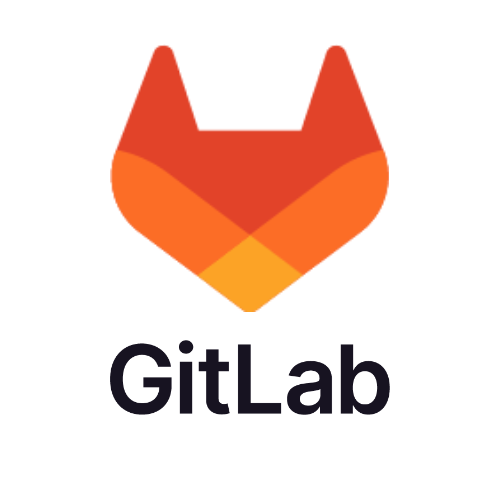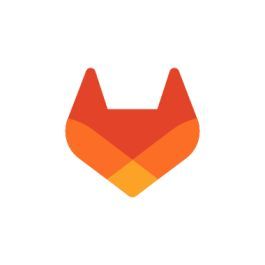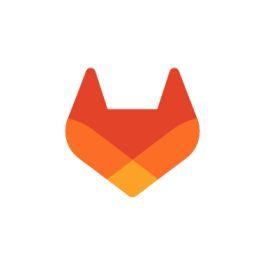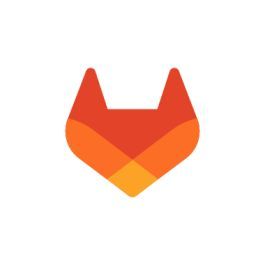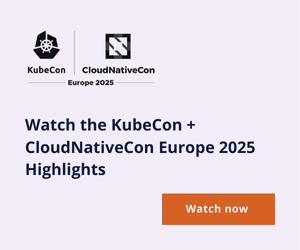At GitLab, they are reimagining the future of software engineering as a human and AI collaboration. Where developers focus on solving technical, complex problems and driving innovation, while AI agents handle the routine, repetitive tasks that slow down progress. Where developers are free to explore new ideas in code at much lower cost, bug backlogs are a thing of the past, and users of the software you build enjoy a more usable, reliable, and secure experience. This isn't a distant dream. They're building this reality today, and it is called the GitLab Duo Agent Platform.
What is GitLab Duo Agent Platform?
GitLab Duo Agent Platform is our next-generation DevSecOps orchestration platform designed to unlock asynchronous collaboration between developers and AI agents. It will transform your development workflow from isolated linear processes into dynamic collaboration where specialized AI agents work alongside you and your team on every stage of the software development lifecycle; it will be like having an unlimited team of colleagues at your disposal.
Imagine delegating a complex refactoring task to a Software Developer Agent while simultaneously having a Security Analyst Agent scan for vulnerabilities and a Deep Research Agent analyze progress across your repository history. This all happens in parallel, orchestrated seamlessly within GitLab.
Today, they are announcing the launch of the first public beta of the GitLab Duo Agent Platform for GitLab.com and self-managed GitLab Premium and Ultimate customers. This is just the first in a series of updates that will improve how software gets planned, built, verified, and deployed as we amplify human ingenuity through intelligent automation.
This first beta focuses on unlocking the IDE experience through the GitLab VS Code extension and JetBrains IDEs plug-in; next month, they plan on bringing the Duo Agent Platform experience to the GitLab application and expand our IDE support. Let me share a bit more about our vision for the roadmap between now and general availability, planned for later this year. You can find details about the first beta down below.
Watch this video or read on for what's available now and what's to come. Then, if you're ready to get started with Duo Agent Platform, find out how with the public beta.
GitLab's unique position as an orchestration platform
GitLab sits at the heart of the development lifecycle as the system of record for engineering teams, orchestrating the entire journey from concept to production for over 50 million registered users, including half of the Fortune 500 across geographies. This includes over 10,000 paying customers across all segments and verticals, including public institutions.
This gives GitLab something no competitor can match: a comprehensive understanding of everything it takes to deliver software. They bring together your project plans, code, test runs, security scans, compliance checks, and CI/CD configurations to not only power your team but also orchestrate collaboration with AI agents you control.
As an intelligent, unified DevSecOps platform, GitLab stores all of the context about your software engineering practice in one place. We will expose this unified data to AI agents via our knowledge graph. Every agent we build has automatic access to this SDLC-connected data set, providing rich context so agents can make informed recommendations and take actions that adhere to your organizational standards.
Here's an example of this advantage in action. Have you ever tried to figure out exactly how a project is going across dozens, if not hundreds, of stories and issues being worked on across all the developers involved? Our Deep Research Agent leverages the GitLab Knowledge Graph and semantic search capabilities to traverse your epic and all related issues, and explore the related codebase and surrounding context. It quickly correlates information across your repositories, merge requests, and deployment history. This delivers critical insights that standalone tools can't match and that would take human developers hours to uncover.
Strategic evolution from AI features to agent orchestration
GitLab Duo started as an add-on, bringing generative AI to developers through Duo Pro and Enterprise. With GitLab 18.0, it's now built into the platform. They've unlocked Duo Agentic Chat and Code Suggestions for all Premium and Ultimate users, and now thry're providing immediate access to the Duo Agent Platform.
They've ramped up engineering investment and are accelerating delivery, with powerful new AI features landing every month. But they're not just building another coding assistant. GitLab Duo is becoming an agent orchestration platform, where you can create, customize, and deploy AI agents that work alongside you and interoperate easily with other systems, dramatically increasing productivity.
“GitLab Duo Agent Platform enhances our development workflow with AI that truly understands our codebase and our organization. Having GitLab Duo AI agents embedded in our system of record for code, tests, CI/CD, and the entire software development lifecycle boosts productivity, velocity, and efficiency. The agents have become true collaborators to our teams, and their ability to understand intent, break down problems, and take action frees our developers to tackle the exciting, innovative work they love.” - Bal Kang, Engineering Platform Lead at NatWest
Agents that work out of the box
They are introducing agents that mirror familiar team roles. These agents can search, read, create, and modify existing artifacts across GitLab. Think of these as agents you can interact with individually, that also act as building blocks that you can customize to create your own agents. Like your team members, agents have defined specializations, such as software development, testing, or technical writing. As specialists, they're tapping into the right context and tools to consistently accomplish the same types of tasks, wherever they're deployed.
Here are some of the agents they're building today:
- Chat Agent (now in beta): Takes natural language requests to provide information and context to the user. Can perform general development tasks, such as reading issues or code diffs. As an example, you can ask Chat to debug a failed job by providing the job URL.
-
Software Developer Agent (now in beta): Works on assigned items by creating code changes in virtual development environments and opening merge requests for review.
-
Product Planning Agent: Prioritizes product backlogs, assigns work items to human and agentic team members, and provides project updates over specified timelines.
-
Software Test Engineer Agent: Tests new code contributions for bugs and validates if reported issues have been resolved.
-
Code Reviewer Agent: Performs code reviews following team standards, identifies quality and security issues, and can merge code when ready.
-
Platform Engineer Agent: Monitors GitLab deployments, including GitLab Runners, tracks CI/CD pipeline health, and reports performance issues to human platform engineering teams.
-
Security Analyst Agent: Finds vulnerabilities within codebases and deployed applications, and implements code and configuration changes to help resolve security weaknesses.
-
Deployment Engineer Agent: Deploys updates to production, monitors for unusual behavior, and rolls back changes that impact application performance or security.
-
Deep Research Agent: Conducts comprehensive, multi-source analysis across your entire development ecosystem.
What makes these agents powerful is their native access to GitLab's comprehensive toolkit. Today, they have over 25 tools, from issues and epics to merge requests and documentation, with more to come. Unlike external AI tools that operate with limited context, our agents work as true team members with full platform privileges under your supervision.
In the coming months, you'll also be able to modify these agents to meet the needs of your organization. For example, you'll be able to specify that a Software Test Engineer Agent follows best practices for a particular framework or methodology, deepening its specialization and turning it into an even more valuable team member.
Flows orchestrate complex agent tasks
On top of individual agents, they are introducing agent Flows. Think of these as more complex workflows that can include multiple agents with pre-built instructions, steps, and actions for a given task that can run autonomously.
While you can create Flows for basic tasks common to individuals, they truly excel when applied to complex, specialized tasks that would normally take hours of coordination and effort to complete. Flows will help you finish complex tasks faster and, in many cases, asynchronously without human intervention.
Flows have specific triggers for execution. Each Flow contains a series of steps, and each step has detailed instructions that tell a specialized agent what to do. This granular approach allows you to give precise instructions to agents in the Flow. By defining instructions in greater detail and establishing structured decision points, Flows can help solve for the inherent variability in AI responses while eliminating the need to repeatedly specify the same requirements, unlocking more consistent and predictable outcomes without user configuration.
Here are some examples of out-of-the-box Flows that they are building:
-
Software Development Flow (now in beta): Orchestrates multiple agents to plan, implement, and test code changes end-to-end, helping transform how teams deliver features from concept to production.
-
Issue-to-MR Flow: Automatically converts issues into actionable merge requests by coordinating agents to analyze requirements, prepare comprehensive implementation plans, and generate code.
-
Convert CI File Flow: Streamlines migration workflows by having agents analyze existing CI/CD configurations and intelligently convert them to GitLab CI format with full pipeline compatibility.
-
Search and Replace Flow: Discovers and transforms code patterns across codebases by systematically analyzing project structures, identifying optimization opportunities, and executing precise replacements.
-
Incident Response & Root Cause Analysis Flow: Orchestrates incident response by correlating system data, coordinating specialized agents for root cause analysis, and executing approved remediation steps while keeping human stakeholders informed throughout the resolution process.
This is where GitLab Duo Agent Platform is taking a truly unique approach versus other AI solutions. They won't just give you pre-built agents. They'll also give you the power to create, customize, and share agent Flows that perfectly match your individual and organization's unique needs. And with Flows, you will then be able to give agents a specific execution plan for common and complex tasks.
They believe this approach is more powerful than building purpose-built agents like our competitors do, because every organization has different workflows, coding standards, security requirements, and business logic. Generic AI tools can't understand your specific context, but GitLab Duo Agent Platform will be able to be tailored to work exactly how your team works.
Why build agents and agent Flows in the GitLab Duo Agent Platform?
Build fast. You can build agents and complex agent Flows in the Duo Agent Platform quickly and easily using a fast, declarative extensibility model and UI assistance.
Built-in compute. With Duo Agent Platform, you no longer have to worry about the hassle of standing up your own infrastructure for agents: compute, network, and storage are all built-in.
SDLC events. Your agents can be invoked automatically on common events: broken pipeline, failed deployment, issue created, etc.
Instant access. You can interact with your agents everywhere in GitLab or our IDE plug-in: assign them issues, @mention them in comments, and chat with them everywhere Duo Chat is available.
Built-in and custom models supported. Your agents will have automatic access to all of the models they support, and users will be able to choose specific models for specific tasks. If you want to connect Duo Agent Platform to your own self-hosted model, you will be able to do that too!
Model Context Protocol (MCP) endpoints. Every agent and Flow can be accessed or triggered via native MCP endpoints, allowing you to connect to and collaborate with your agents and Flows from anywhere, including popular tools like Claude Code, Cursor, Copilot, and Windsurf.
Observability and security. Finally, they provide built-in observability and usage dashboards, so you can see exactly who, where, what, and when agents took actions on your behalf.
A community-driven future
Community contributions have long fueled GitLab's innovation and software development. They're excited to partner with our community with the introduction of the AI Catalog. The AI Catalog will allow you to create and share agents and Flows within your organization and across the GitLab Ecosystem in our upcoming beta.
They believe that the most valuable AI applications are likely to emerge from you, our community, thanks to your daily application of GitLab Duo Agent Platform to solve numerous real-world use cases. By enabling seamless sharing of agents and Flows, they're creating a network effect where each contribution enhances the platform's collective intelligence and value. Over time, they believe that the most valuable use cases from Agent Platform will come from our thriving GitLab community.
Available today in the GitLab Duo Agent Platform in public beta
The GitLab Duo Agent Platform public beta is available now to Premium and Ultimate customers with these capabilities:
Software Development Flow: Our first Flow orchestrates agents in gathering comprehensive context, clarifying ambiguities with human developers, and executing strategic plans to make precise changes to your codebase and repository. It leverages your entire project, including its structure, codebase, and history, along with additional context like GitLab issues or merge requests to amplify developer productivity.
New Agent tools available: Agents now have access to multiple tools to do their work, including:
- File System (Read, Create, Edit, Find Files, List, Grep)
- Execute Command Line*
- Issues (List, Get, Get Comments, Edit*, Create*, Add/Update Comments*)
- Epics (Get, Get Comments)
- MR (Get, Get Comments, Get Diff, Create, Update)
- Pipeline (Job Logs, Pipeline Errors)
- Project (Get, Get File)
- Commits (Get, List, Get Comments, Get Diff)
- Search (Issue Search)
- Secure (List Vulnerabilities)
- Documentation Search
*=Requires user approval
GitLab Duo Agentic Chat in the IDE: Duo Agentic Chat transforms the chat experience from a passive Q&A tool into an active development partner directly in your IDE.
- Iterative feedback and chat history: Duo Agentic Chat now supports chat history and iterative feedback, transforming the agent into a stateful, conversational partner. This fosters trust, enabling developers to delegate more complex tasks and offer corrective guidance.
- Streamlined delegation with slash commands: Expanded, more powerful slash commands, such as /explain, /tests, and /include, create a “delegation language” for quick and precise intent. The /include command allows the explicit injection of context from specific files, open issues, merge requests, or dependencies directly into the agent's working memory, making the agent more powerful and teaching users how to provide optimal context for high-quality responses.
- Personalization through custom rules: New Custom Rules enables developers to tailor agent behavior to individual and team preferences using natural language, for example, development style guides. This foundational mechanism shapes the agent's persona into a personalized assistant, evolving toward specialized agents based on user-defined preferences and organizational policies.
- Support for GitLab Duo Agentic Chat in JetBrains IDE: To help meet developers where they work, they have expanded Duo Agentic Chat support to the JetBrains family of IDEs, including IntelliJ, PyCharm, GoLand, and Webstorm. This adds to our existing support for VS Code. Existing users get agentic capabilities automatically, while new users can install the plugin from the JetBrains Marketplace.
- MCP client support: Duo Agentic Chat can now act as an MCP client, connecting to remote and locally running MCP servers. This capability unlocks the agent's ability to connect to systems beyond GitLab like Jira, ServiceNow, and ZenDesk to gather context or take actions. Any service that exposes itself via MCP can now become part of the agent's skill set. The official GitLab MCP Server is coming soon!
-
Integrated GitLab experience: Building on the IDE extensions available in 18.2, they're expanding agents and Flows within the GitLab platform. This deeper integration will expand the ways you can collaborate synchronously and asynchronously with agents. You will be able to assign issues directly to agents, @mention them within GitLab Duo Chat, and seamlessly invoke them from anywhere in the application while maintaining MCP connectivity from your developer tool of choice. This native integration transforms agents into true development team members, accessible across GitLab.
-
Agent observability: As agents become more autonomous, they're building comprehensive visibility into their activity as they progress through Flows, enabling you to monitor their decision-making processes, track execution steps, and understand how they're interpreting and acting on your development challenges. This transparency into agent behavior builds trust and confidence while allowing you to optimize workflows and identify bottlenecks, and helps ensure agents are performing exactly as intended.
-
AI Catalog: Recognizing that great solutions come from community innovation, they will soon introduce the public beta of our AI Catalog — a marketplace which will allow you to extend Duo Agent Platform with specialized Agents and Flows sourced from GitLab, and over time, the broader community. You'll be able to quickly deploy these solutions in GitLab, leveraging context across your projects and codebase.
-
Knowledge Graph: Leveraging GitLab's unique advantage as the system of record for source code and its surrounding context, they're building a comprehensive Knowledge Graph that not only maps files and dependencies across the codebase but also makes that map navigable for users while accelerating AI query times and helping increase accuracy. This foundation enables GitLab Duo agents to quickly understand relationships across your entire development environment, from code dependencies to deployment patterns, unlocking faster and more precise responses to complex questions.
- Create and edit agents and Flows: Understanding that every organization has unique workflows and requirements, they're developing powerful agent and Flow creation and editing capabilities that will be introduced as the AI Catalog matures. You'll be able to create and modify agents and Flows to operate precisely the way your organization works, delivering deep customization across the Duo Agent Platform that enables higher quality results and increased productivity.
-
Official GitLab MCP Server: Recognizing that developers work across multiple tools and environments, they're building an official GitLab MCP server that will enable you to access all of your agents and Flows via MCP. You'll be able to connect to and collaborate with your agents and Flows from anywhere MCP is supported, including popular tools like Claude Code, Cursor, Copilot, and Windsurf, unlocking seamless AI collaboration regardless of your preferred development environment.
-
GitLab Duo Agent Platform CLI: Our upcoming CLI will allow you to invoke agents and trigger Flows on the command line, leveraging GitLab's rich context across the entire software development lifecycle—from code repositories and merge requests to CI/CD pipelines and issue tracking.


